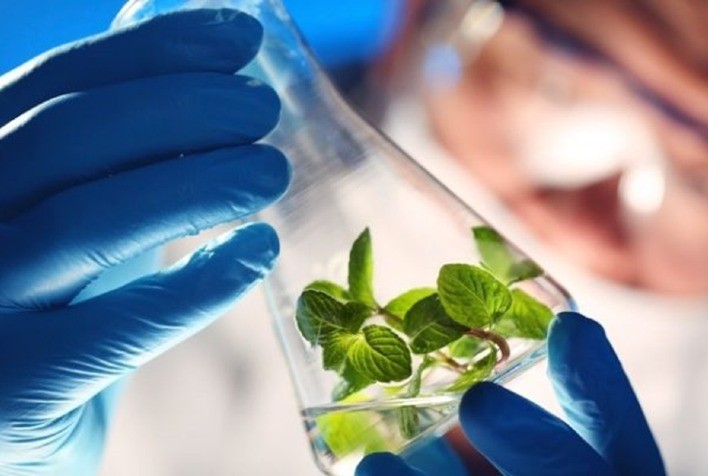*Written by Desio Luiz Gazzoni
Science advances and progress appears such as: corn Short in stature, it withstands strong storms. wheat Which tolerates drought. rice Which can be grown in salty soil. Sorghum Which uses water more efficiently in warm climates. Varieties Plants with fungal resistance. These are just some of the crops that scientists are working to improve with help Gene editinga technology that was first demonstrated only 12 years ago.
source: com. portaldoagronegocio
Although this technology has already achieved remarkable progress in medicine, its potential to revolutionize food and agriculture is no less profound. In particular, scientists are betting on it to find solutions to cope with the ongoing profound climate changes. Extreme weather conditions threaten crops around the world. As the planet warms, gene editing is one of our greatest hopes for developing resilient and adaptive crops.
The first gene-editing food to hit the market was red Sicilian tomatoes, which were produced in Japan. The United States is among the countries most open to new genomic technologies. In 2023, a product called Conscious Greene, edited by CRISPR, was launched. It's a salad mix with the nutritional density of dark leafy greens, modified for the mild flavor of romaine lettuce.
There are other examples. A large multinational company is developing an ambitious program called CoverCress, which consists of Oilseeds Winter with low input consumption, high potential for soil carbon storage, increased organic matter content and contribution to beneficial microbiomes. Oil can be extracted from them to produce biofuels, including SAF. It is also investing in developing Asian rust-resistant genotypes. SoyReducing the use of fungicides.
Preserve food supplies and science
The population is expected to reach 10 billion by 2050 food security This was one of the highlights of the United Nations Climate Change Conference (COP28), and the benefits of gene editing were part of that conversation. Gene editing reduces – from decades to months – the time needed to produce new varieties with desirable characteristics. This is because it allows scientists to make precise changes to a specific region of the crop's genome, so that it expresses the desired characteristic.
For humanity to get the most out of gene editing, regulation and social support are needed. For example, in Europe, GMOs still generate some restrictions on the part of civil society, which is reflected in the bloc's legislation, although studies consistently prove the safety of foods already on the market, some for more than three decades. There is still an ongoing debate about whether or not a variety obtained by gene editing should be considered GMO, although the vast majority of experts do not consider it to be so, as there has been no introduction of foreign genetic material – only plant editing. . Own genetic material.
to Climate change It hits Europe hard. In 2023, the European Union announced a proposal to allow gene editing in crops, recognizing the importance of how to adapt to climate change as quickly as possible. The same thing happens in many African countries. If approved, Europe and African countries will be on par with the USA, Canada, China, Argentina and Brazil, which have specific regulations for gene editing.
Consumers and Science
Just as regulatory systems often lag behind science, consumer attitudes also do not fully track the rapid scientific development that characterizes the 21st century. The hesitation that persists regarding GMOs – genetically modified organisms – is based in part on the population's lack of scientific knowledge: 36% of American consumers say they know nothing or very little about GMOs, and despite their low level of knowledge 47% of them say they know nothing about GMOs. Avoid genetically modified foods.
In fact, there is no scientific evidence that eating genetically modified foods causes adverse health effects. However, the stigma persists: some people fear that genetically modified foods are unnatural and therefore unhealthy, which is a fallacy. Many natural things are considered dangerous, such as radiation or arsenic, while genetically modified crops are 99.99% identical in composition to the originals and undergo rigorous safety testing before being approved for marketing.
Globally, gene editing is a very important tool in the near future. Along with other modern technologies, they are part of the arsenal available to humanity to reduce greenhouse gas emissions, on the one hand, and mitigate the effects of climate change on the supply of agricultural products, especially food, on the other hand. For this to happen, there is a need for greater knowledge of the safety of scientific innovations on the part of the population, and for harmonized regulations across countries and blocs.
*Agricultural engineer and researcher at Embrapa and member of the Scientific Council on Sustainable Agriculture and the Brazilian Academy of Sciences

“Wannabe internet buff. Future teen idol. Hardcore zombie guru. Gamer. Avid creator. Entrepreneur. Bacon ninja.”


